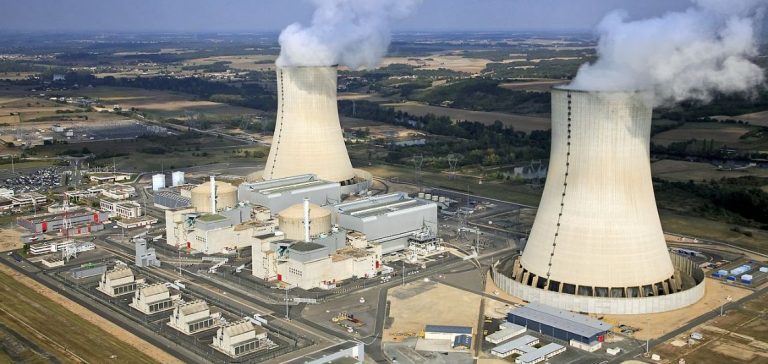The project to increase the nuclear waste tax in Spain has triggered a wave of legal challenges from Foro Nuclear, representing the interests of nuclear operators. The government has decided to raise the tax from 7.98 euros to 10.36 euros per MWh, a 30% increase. This measure is justified by the need to fund the rising costs of radioactive waste storage and management. Operators strongly oppose this change, as it would lead to an additional annual cost of approximately 130 million euros, on top of the current 450 million euros paid each year.
Operators Mobilize
Major companies in the sector, such as Iberdrola and Endesa, which manage the majority of Spain’s nuclear reactors, are also considering filing independent lawsuits. For operators, this increase jeopardizes the financial viability of their operations, especially in a market context where profitability is already under pressure.
The Spanish government has announced its intention to dismantle all reactors by 2035, with a total cost estimated at 20.2 billion euros. This amount will have to be covered by a special fund financed by the operators’ contributions. However, this strategy raises concerns about the companies’ ability to provide the necessary funding while remaining competitive against other energy sources.
Historical Context and Political Tensions
Historically, Spain has struggled to establish a coherent strategy for managing its nuclear waste. As early as 2010, protests erupted over the attempted establishment of a storage site near Madrid. Local opposition, reinforced by the absence of a long-term plan, has weakened the authorities’ stance on this issue.
At the same time, the lack of political consensus on the future of nuclear energy in the country has fueled tensions between operators and the government. This new tax risks exacerbating disagreements, especially if legal appeals succeed and force the government to review its funding policy.
Economic and Strategic Implications
If the tax is maintained, the nuclear sector could lose its competitiveness compared to other energy sources, potentially leading to the early closure of some reactors. This would have a direct impact on the balance of the Spanish energy market and could result in higher electricity prices for consumers.
For the government, the goal is to secure the funds necessary for dismantling the plants while meeting its commitments in terms of decarbonation. However, operators believe that this strategy endangers the sustainability of their activities, especially in a context where other European countries are opting for less restrictive alternatives.
Future Scenarios for the Nuclear Sector
In the long term, this situation could force operators to rethink their business models, by seeking to diversify their revenue sources or investing more in competitive technologies. If the legal challenges are successful, it could also compel the government to redefine its funding strategy for waste storage, which would alter the entire nuclear value chain in Spain.
In summary, this nuclear waste tax increase highlights the strategic challenges facing the Spanish nuclear sector, in a context of energy transition marked by the search for sustainable and economically viable solutions.






















